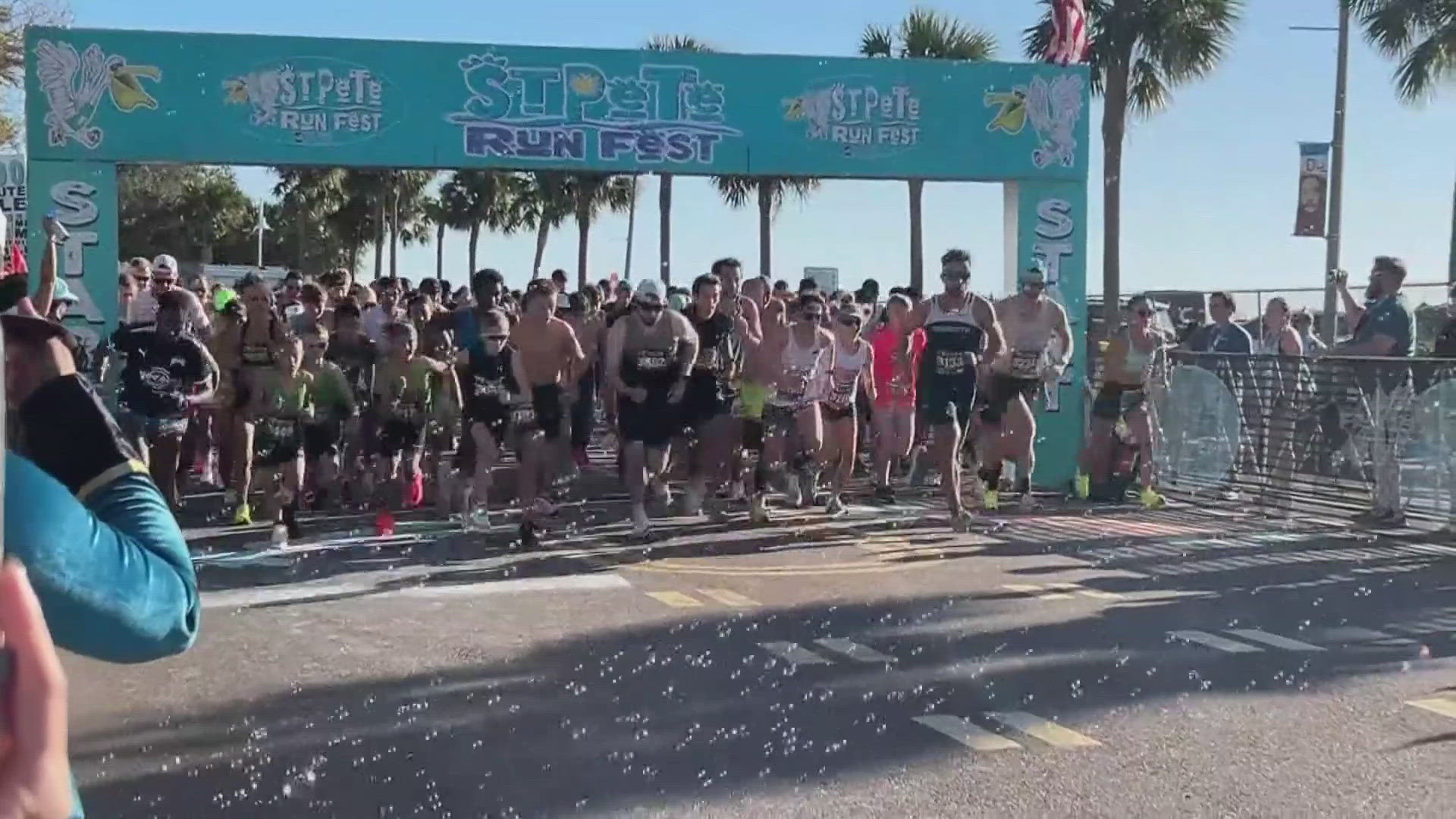GAINESVILLE, Fla. — A sophisticated voice-identity technology used to monitor prisoners and inmates across Florida and elsewhere is so secretive and controversial that its manufacturer urged government agencies to coordinate with its public relations office before responding to inquiries from news organizations, a Fresh Take Florida investigation found.
One Florida county won’t reveal even details of its contract with the company, such as how the technology is funded or how much Securus is collecting from inmates and their families in exchange for its services, saying those disclosures would reveal the company’s proprietary secrets. Twenty-two other Florida counties readily provided copies of their Securus contracts to Fresh Take Florida under state law.
Inmates throughout Florida are compelled to agree to monitoring by the software developed by Securus Technologies, called Investigator Pro, or they risk losing or limiting their phone privileges. But there are serious, unanswered public policy questions about the technology: What happens to the voice records of defendants who are acquitted or whose criminal charges are dropped? What happens to voice records of innocent civilians whom inmates call from jails? What restrictions exist in using those voice records for other purposes, by governments or private corporations? What happens if the software mistakes someone’s voice for another’s?
The secrecy surrounding the software and its use across American jails and prisons is frustrating efforts to answer such questions. The company, based in Dallas, is privately held and said it works with more than 3,400 public safety, law enforcement and corrections agencies across the U.S. and that its services are used by more than 1.2 million inmates. But it has not discussed its technology or its implications in extensive detail, describing it only as an “essential tool for law enforcement” that can detect and prevent serious crimes.
A Securus executive, Joanna Acocella, declined to answer questions about the company or its software. She said in a statement that the tool has prevented “serious criminal activity, including violence within prisons, and harassment of witnesses and victims of domestic violence.”
In Alachua County, even after questions were raised about the system, officials said they were unconcerned about the technology or implications about its use. During a meeting in March, county commissioner Ken Cornell said the sheriff’s answers satisfied him. He did not elaborate about what the sheriff assured him.
Rarely do cases surface publicly in ways that provide insights into how law enforcement uses the secretive technology. But Fresh Take Florida discovered one case in Gainesville that is instructive: A felon with a lengthy rap sheet of drug and violence charges, Roosevelt Smoaks, was accused of using other inmates’ PINs to call people surreptitiously. The Securus software quietly listened since his latest arrest in February as Smoaks allegedly called his girlfriend, his mother and a bail bondsman – and flagged for authorities that Smoaks’ voice didn’t match the PINs he was using.
“I was informed by Investigator Pro, a software platform associated with Securus, that there was a high probability that Smoaks had made numerous phone calls using the PINs of other inmates,” wrote Michael H. Lynch of the Alachua County Sheriff’s Office. Lynch said in court files that both he and the software separately were able to recognize Smoaks’ voice on the recorded calls.
Smoaks was charged in county circuit court with nine counts of criminal fraud and impersonation, all felonies. He has pleaded innocent and is being represented by a public defender. His next court hearing in the case was scheduled for Monday afternoon.
Investigator Pro was also used in at least two other cases in Alachua County alone to support criminal charges against inmates, according to court records reviewed by Fresh Take Florida.
Sensitive to scrutiny and unwilling to respond to most press inquiries directly, Securus has sought to stem the flow of information about its technology from government agencies. The company tells governments to coordinate with its public relations office before responding to inquiries from news organizations, according to internal files obtained by Fresh Take Florida.
One memo warned that “the media is becoming more intrigued” with the technology and provides a list of talking points for facilities that are approached for questioning.
In Clay County, southwest of Jacksonville, Sheriff Darryl Daniels declined to release even details about his agency’s partnership with Securus, such as how the technology is being funded. The sheriff, famous in this part of the state for his outspoken manner and his iconic cowboy hat, said those records were exempt under Florida’s powerful public records law, even though nearly two dozen other counties turned over the same types of paperwork.
Imposing secrecy around cutting-edge law enforcement technologies – even when it conflicts with open government laws and public efforts to impose cost and civil rights accountability – isn’t new. It’s reminiscent of efforts by federal, state and local authorities to withhold details in recent years about devices known as IMSI catchers to track people using their cell phones or software to track down internet pedophiles. In some of those cases, authorities have refused to turn over contracts or other records about their purchases made with public money – or even dropped criminal charges when defense lawyers have demanded details about the technologies during trials.
The technology was first revealed in an expose in January by the Intercept, an online news organization. Since then, new clues have emerged about how the technology works.
The software “uses continuous voice identification technology to determine what inmate(s) are speaking on the call, detect certain three-way call violations and help investigators find correlations between calls that might otherwise go undetected,” according to the company’s contract with Alachua County, obtained under public records laws.
Voice identification creates a unique digital fingerprint based on the voice it detects in an audio recording. That can be stored and used by Investigator Pro to compare against unknown voices in other recordings and identify them.
Internal records obtained by Fresh Take Florida said the software uses a proprietary algorithm to generate a numerical formula based on a person’s voice. The company is careful to note in documents that actual voice clips or audio samples aren’t stored on its computers in Texas, but the unique value associated with the person’s voice is stored there and can only be analyzed using the Investigator Pro software. It’s unclear how many tens of millions of voices across the United States are represented in the company’s data.
“The function of it is to identify you,” said Aaron Mackey, a staff attorney for the Electronic Frontier Foundation, a civil liberties group that has raised questions about the technology. “Even if they claim that it’s being stored separately and that the data that they’re storing is not itself personally identifiable, the whole point and purpose of creating that digital identifier is to subsequently identify you.”
Mackey likened it to other types of biometric technology, like facial recognition. A device might not store an actual photo of the owners’ face, but it creates a digital sequence that is uniquely identifiable based on the scan of the face.
There appears to be little oversight about how long Securus stores the data or whether it can be used for other purposes now or in the future, Mackey said.
“There’s no backend protection or limit on how long they get to keep this personally identifiable information about you,” he said. “They’re just sort of collecting up all of this data and keeping it in perpetuity.”
Some Florida counties began using the software as early as 2014, soon after Securus acquired JLG Technologies — a company that had been spearheading the development of voice biometric technology.
In most counties, Securus funds the upfront cost of the use of its technology, according to contracts reviewed by Fresh Take Florida. The phone call and video visitation rates that inmates and their callers are charged are paid to Securus to pay off the debt. Counties are contractually obligated to ensure that Securus makes its money back in full by the end of the contract term. Otherwise, they owe the remaining balance, which they can choose to pay or renew their contracts until the call rates pay the debt.
Each county also earns a commission on the general revenue made from its correctional facilities. Some get other perks as well. The Gadsden County Sheriff’s Office received a $100,000 signing bonus for using the company, according to the county’s contract.
In some cases, the secretive technology has captured the voice prints of defendants who were acquitted or whose criminal cases were dropped by prosecutors. Jamaya Burgess, 24, of Gainesville, was arrested in a domestic battery case in January but never prosecuted after the victim declined to pursue the matter. She said she was surprised to hear from a reporter that the technology was in use during her brief stay in the Alachua County Jail.
She remembers maybe signing a document about the use of phone services at the jail but can’t remember details.
“I don’t think it said anything about it being kept, I’m not sure,” she said.
___
Reporter Brandon Meyer contributed to this story.
What other people are reading right now:
- OVERTURNED! Kentucky Derby winner Maximum Security disqualified; Country House named winner
- 'It is a miracle': Plane slides into Jacksonville river with 143 people on board
- Love bugs are invading Florida: Here's are simple hacks to handle them
- 'Jeopardy James' wins No. 22, and now he's taking a break
- Florida man in Speedo shows off pot plant to deputies, officials say
►Make it easy to keep up-to-date with more stories like this. Download the 10News app now.
Have a news tip? Email desk@wtsp.com, or visit our Facebook page or Twitter feed.



